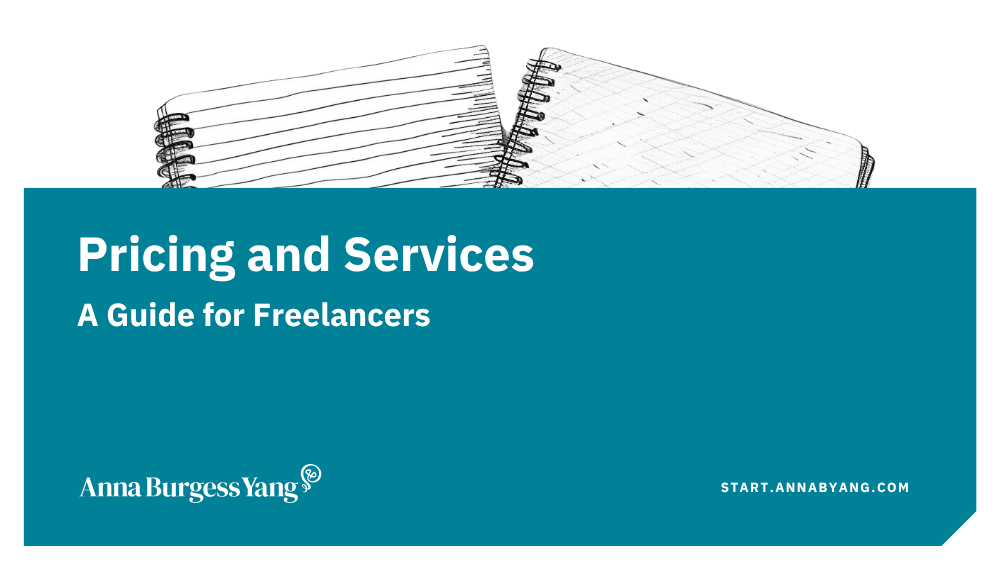From Tech Executive to Solopreneur: How I Built a Freelance Content Marketing Business
The transition from corporate to freelance

In 2021, I made a decision that changed the trajectory of my career. I walked away from my corporate executive job and pivoted to content marketing and journalism.
At first, it was terrifying. I was hired full-time by a content marketing agency and also hired by a banking publication for ongoing freelance work. In both roles, I felt like an imposter. Everyone around me had vastly more experience. I wasn't a journalist, and I wasn't a content marketer.
Eighteen months later, I lost my full-time job and started freelancing full-time. Within two months, I'd replaced my salary. Today, I run a thriving freelance content marketing business as a fintech writer.
While I consider myself a good writer, building a business takes a lot more. You need the right tools, structure, and discipline. I brought a lot of skills from my former executive experience to my "role" as Chief Everything Officer in my solo business.
Here's what benefited me the most.
Leveraging my past experience
When I left corporate life, I didn’t leave behind my expertise. I spent 15 years in fintech and six years before that in banking. That experience gave me something most freelancers don't have — real-world knowledge of how financial systems, software, and customer relationships actually work.
At the fintech, I was a product manager. I called myself the "translator" between the customer service and development team. I had to turn user requests into technical language that the development team could understand. I also had to manage competing priorities between what users wanted and what the sales team demanded.
No matter what your background, freelance content marketing isn’t just about writing or strategy. It's about understanding the audience you're trying to reach. If you're new to the particular industry, you're working in, you've got to gain the experience somehow: interviews, podcasts, and industry publications. Otherwise, the work you do won't resonate with the audience.

Relying on tools and organization
When I worked in corporate, I was often responsible for choosing the systems that the team used: project management, email marketing, and a CRM. I tested them out on my own, but had to get buy-in from other people before a purchase was made.
With freelancing, you have to make similar purchases — but you are the sole decision-maker. If you can't find the right fit, you might have to build it yourself (which I've done, in Airtable [affiliate link]). Early on, I realized that staying organized was just as important as doing the work for my clients.
Project management
At any given time, I’m juggling multiple clients, deadlines, and deliverables. To keep everything running smoothly, I rely on a project management system I've created (in Trello).
There are a ton of project management tools out there, like ClickUp and Asana. You'll want to find one that mirrors how you think and fits within your budget. Do you like checklists? A Kanban board? A calendar view?
The key thing you should look for is a centralized view of what's due, when, and for which client.
Client management
Every client has their own preferences, brand voice, and processes. For some clients, I'm working in their project management system. Each client also has a different billing process — like emailing a centralized AP team, submitting an invoice through a portal, or sending an invoice directly to my contact.
To keep everything straight, Airtable is my central hub. I also have dedicated folders for each client in my Google Drive. In my GDrive, I keep copies of the clients' style guides, interview transcripts, outlines, and shared versions of docs for collaboration.
Every time I add a new client to Airtable, folders are automatically added to my Google Drive. Here's a tutorial for setting up client folders using Zapier [affiliate link]
Knowledge management
Even though I have a 15-year background in financial technology, it's an industry that is constantly changing. It's also heavily driven by regulations.
Here's my process for consuming and saving information:
- The Readwise Reader lets me save articles for later
- Readwise also lets me highlight text in articles, which syncs to Reflect (but can also sync to other tools like Notion or Obsidian)
- I can save interesting bits from podcast episodes using Snipd
- If I need a transcript of a video file, I use Rev
Managing my workload
As a solopreneur, you're doing the work, but you're also the boss. That means you have to understand your own bandwidth — and respect it.
Delivering on time isn't optional for me, because it's part of maintaining trust. I only ask for more time if something truly unexpected comes up — like something with one of my kids, or I wake up so sick that I don't think I can work.
I’m realistic with clients about turnaround times. Since I've been freelancing for many years, I know how much time a deliverable will take me. My project management system keeps all of my due dates in check, so I know my availability. And I use time blocking to structure my day into focused work sessions, using one in the morning and another in the afternoon.
I also work in batches of time for non-client work. Every Friday morning, I set aside some time for admin-type tasks. Social media scheduling is another batch of time. That way, I'm not drawn to other items on my to-do list while I should be focusing on client work.
Building relationships
Over the years, my best freelance content marketing opportunities have come through referrals and inbound leads. Word spreads quickly when you’re dependable and good at what you do.
In a few cases, I've gotten referrals from people who haven't worked with me directly. They simply know who I am because I show up online (LinkedIn, but without cringe) and in a few online communities (mostly organized through Slack). So when someone says, "Does anyone know a good writer for XYZ topics?" my name comes to mind and they're willing to tag me.
But that type of relationship-building takes time and requires you to stand out as a freelancer. You have to become known for something.
Relationships also strengthen the work itself. When I need expert quotes or an industry perspective, I often reach out to people in my network for interviews. These connections elevate my work for my clients and also reinforce my own credibility.
I also have a system to keep track of my relationships. I use Clay as a personal CRM and a pipeline I built myself in Airtable.
⚙️ Practical Toolkit
Sharing knowledge with other freelancers
When I was new to freelancing, I relied heavily on others who shared their knowledge freely. I read newsletters, followed freelancers on social media, and joined groups. The people helped me find my confidence as I built my business, shared their ups and downs, and also gave me tips for pricing my work.
A career pivot by itself is a big thing. And right now, many talented professionals are entering the freelancing world by necessity, not by choice. For people who are having a hard time finding a job after a layoff, freelancing is preferable to endless job hunting.
My goal is to make that transition easier by sharing the systems I use and what I've learned after many years of freelancing. People were open with me, and I want to pay it forward.
Because the truth is: being a freelance content marketer doesn’t have to feel like a constant hustle or unsustainable career. With clear processes, a bit of self-promotion, and finding the right clients, it's far more empowering than any 9-5 job.
Freelance pricing is hard to figure out,
but I’ve created a free resource for fellow writers.







